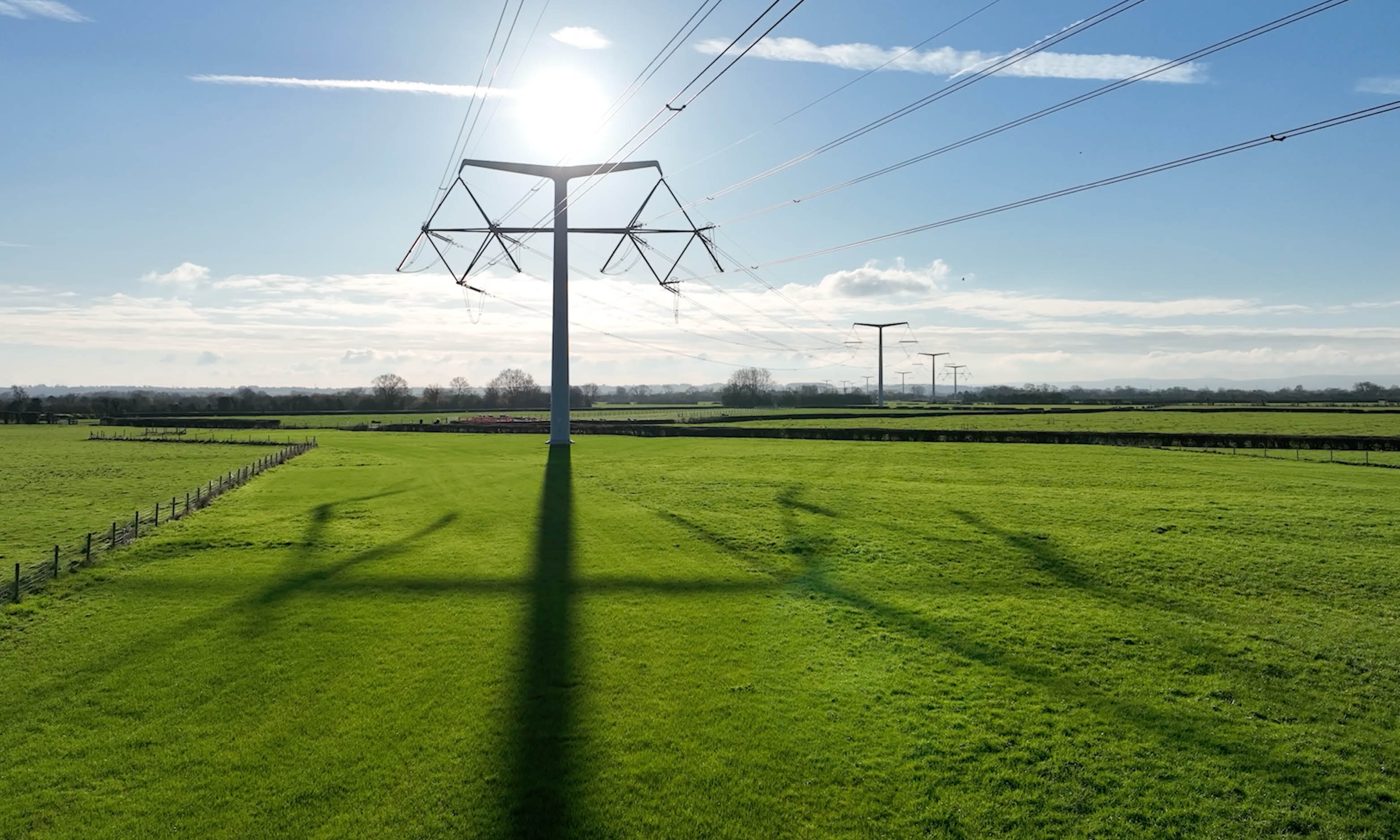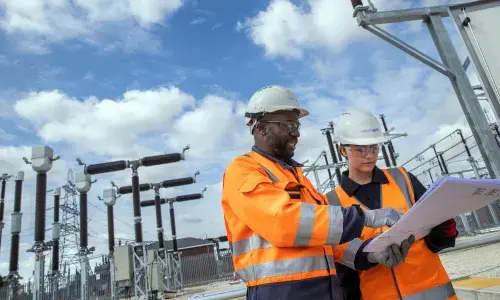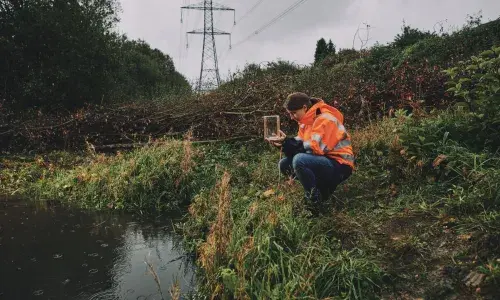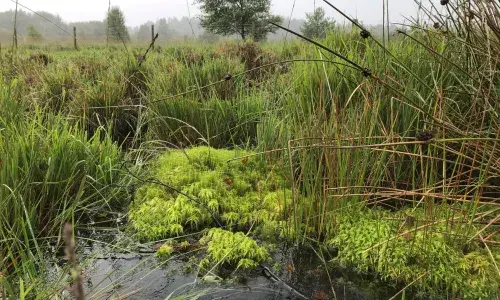
Another year of strong progress towards a sustainable, net zero and nature-positive future
We’ve recently published our second electricity transmission Annual Environmental Report, setting out the actions we’re taking to deliver on our ambitious environmental and sustainability commitments, and contribute to a net zero, nature-positive world.
Our National Grid Electricity Transmission (NGET) business is responsible for building the electricity networks that will support a net zero economy for the UK by 2050. Our Environmental Action Plan 2021-2026, published in 2021, sets out our firm environmental targets for a five-year period and is our handbook to guide us in how we plan and manage our network in a responsible, environmentally sustainable way.
Our second annual environmental report demonstrates how we’re taking bold action, driven by science, to deliver on this plan and achieve a net zero, nature-positive world that will unlock benefits for the whole of society.
Here are some of the highlights from the report, showing the progress we have made across our four priority areas.
Net zero carbon emissions
We’re continuing to make strong progress in reducing emissions from our operations. This year we reduced our scope 1 and 2 emissions by 19% from a 2018/19 baseline.
In April this year we completed a world record-breaking pour of cement-free concrete at London Power Tunnels 2 (LPT2) – a £1 billion project to rewire South London to reinforce and future-proof the electricity network as demand in the capital grows. The earth-friendly concrete pour at Hurst substation was the largest continuous cement-free concrete pour in the world, and we’ve updated our technical specifications so that our suppliers use low-carbon concrete when working for NGET.
Earlier this week, the LPT2 project celebrated another landmark milestone with its final tunnelling breakthrough at Eltham substation in Greenwich, marking the completion of 32.5km of tunnelling at depths of up to 60m under seven South London boroughs.
Connecting the renewable energy sources necessary for a zero-carbon future inevitably means building more infrastructure. But we need to find new ways of working if we’re serious about minimising the impact this has on the environment and the communities we serve.
To do this, we need sustainable solutions using cutting-edge technology, which is why we’ve been testing new ways of reducing our carbon footprint at our Centre for Innovation at Deeside. We’ve been trialling diesel-free alternatives here, as well as ways to fix sulphur hexafluoride (SF6) leaks without any outages.
Find out more about the innovative technologies that are improving our electricity network
Sustainable use of resources
We’re committed to achieving zero waste to landfill across key areas of waste and using circular economy principles to make the most of natural resources and our assets.
This year we achieved zero waste to landfill across our construction projects and are ahead on our office water and waste tonnage reduction targets. We also achieved certification of our environmental management system to ISO14001 for our Electricity Transmission business alone.
Nature positive
We have a major opportunity to deliver a significant contribution to nature’s recovery in the UK and we’ve made continued progress towards enhancing the natural environment.
We’ve enhanced the environmental value of our non-operational land by 3.2% and committed to 10% biodiversity net gain or greater across 14 construction projects. We’re also driving positive environmental benefits and practical conservation outcomes on our Visual Impact Provision projects.
All our construction projects have committed to delivering 10% biodiversity net gain and, last year, seven projects committed to 15% or more.
At Fiddlers Ferry, for example, we have partnered with the Lancashire Wildlife Trust to deliver 27% biodiversity net gain by conserving and enhancing the local wetlands, which in turn is helping to replenish our carbon sinks.
Leadership for change
We’re leading the way in tackling SF6 emissions in Great Britain, collaborating with several manufacturers to find commercially viable alternatives to this greenhouse gas, which have a lower global warming potential.
In FY22 we teamed up with Hitachi to successfully replace SF6 with a greener alternative – the first time it will be used in a new build. We’ve continued our work with Hitachi this year to support the LPT2 project, building a new substation that will be SF6 free and will connect the project to the distribution network in London.
We were also the Official EV Charge Provider for the Birmingham 2022 Commonwealth Games, loaning 125 vehicle chargers for the event and supporting the ambition of making the event the most sustainable Commonwealth Games in history.
Building on our role as principal partner for the 26th session of the Conference of the Parties of the UNFCCC (COP26), we attended COP27 in November 2022 where a team of National Grid delegates demonstrated our continued commitment to, and global leadership of, the clean energy transition.
Read our full 2023 Annual Environmental Report
Have your say on our environmental action plan
Webinar: Thursday 2 November 2023 from 12-1pm GMT
Help NGET continue to focus on the most important areas and deliver the results that matter the most. In this webinar we’ll discuss our environmental performance to date, how the external context is changing and take a look at how to evolve our action plan towards 2030 and beyond.


